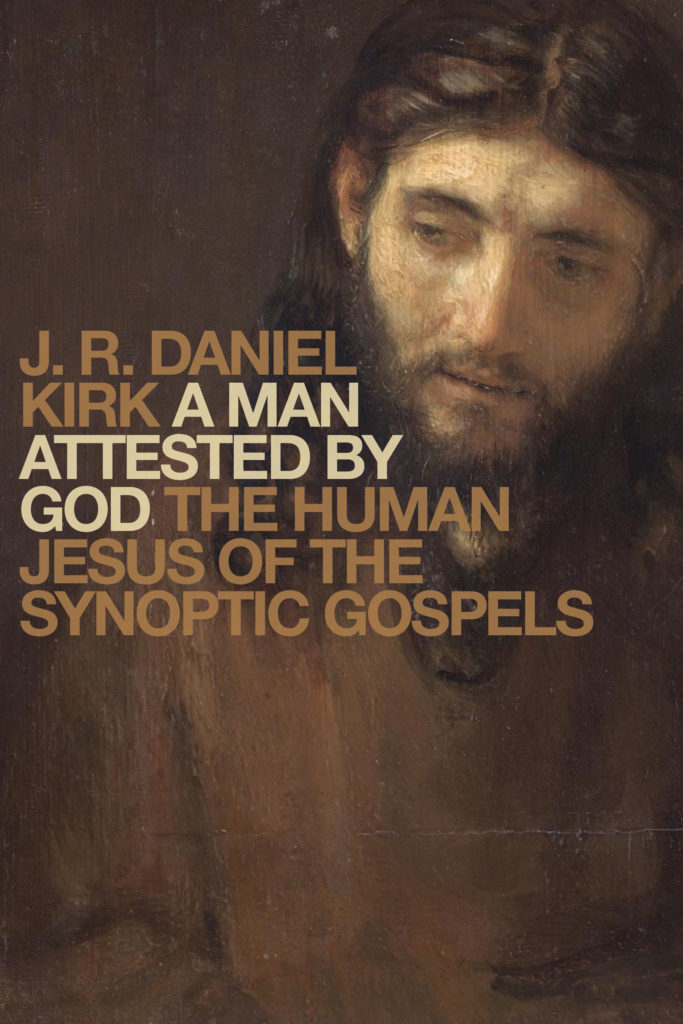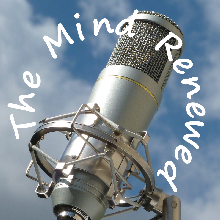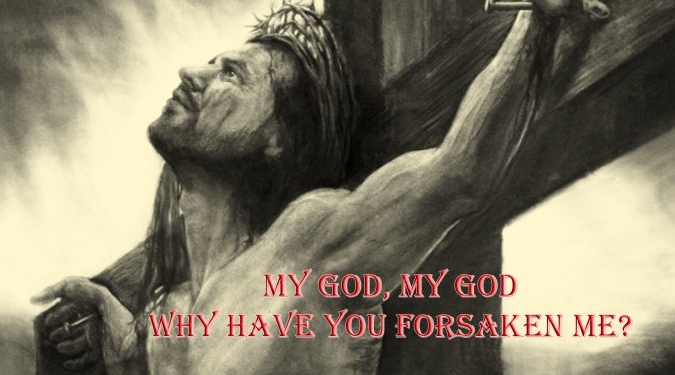Podcast: Play in new window | Download
Subscribe: Spotify | Email | RSS
 Do the gospels according to Matthew, Mark, and Luke discreetly but clearly imply that Jesus is God? This has become a popular reading lately among evangelicals, thanks in large part to the work of Dr. Richard Bauckham.
Do the gospels according to Matthew, Mark, and Luke discreetly but clearly imply that Jesus is God? This has become a popular reading lately among evangelicals, thanks in large part to the work of Dr. Richard Bauckham.
A popular argument strategy has been to focus on the earliest gospel, and the one which arguably has the least material from which to argue that Jesus is presented as divine. Even this gospel, it is argued, in its very first chapter, hints that Jesus is God himself, when this passage is said to be fulfilled:
A voice cries out: “In the wilderness prepare the way of the Lord, make straight in the desert a highway for our God.” (Isaiah 40:3, NRSV)
Clearly, in Mark Jesus is the one for whom a way is being prepared; so, by referencing this text, the author is telling us that Jesus is God, right? Wrong, according to Dr. Kirk. As he explains here (starting at around 15:13) and argues at length in the book, this is a misreading of Mark 1. When we pay careful attention to the texts and how the author is using them, it seems that he’s deliberately avoided calling Jesus “God” here. What is actually in Mark 1 isn’t exactly what is above, but rather, filling in the names of the three characters involved according to this gospel:
“See, I [God] am sending my messenger [John the Baptist] ahead of you [Jesus], who will prepare your [Jesus’s] way; the voice of one [John] crying out in the wilderness: ‘Prepare the way of the Lord [Jesus], make his [Jesus’s] paths straight’”
As Dr. Kirk explains, here we are presented with three characters: God, Jesus, and John the Baptist.
Dr. Kirk’s overall thesis in this book is that in the first three gospels Jesus is presented as an “idealized human figure,” a category which he explains using numerous ancient Jewish texts, biblical and extra-biblical. In our conversation here, he focuses on the interesting case of Moses. In light of this whole ancient Jewish context, Dr. Kirk says that
…everything that is said about Jesus in the synoptic gospels has been said about other glorified, idealized human figures in the story of Israel. …we see these as stories about a messiah, a surprising messiah…
One surprising aspect of Jesus’s ministry is his authority to forgive sins. But as Dr. Kirk explains (18:25), the text itself (Mark 2:10) presents Jesus as an extraordinary man who has been granted this authority by God. Throughout the book Dr. Kirk distinguishes identifying Jesus with God from identifying Jesus as God. We discuss this distinction and Dr. Kirk’s contention that the synoptics frequently do the former but, contra Bauckham and others, never do the latter.
Dr. Kirk contrasts the christologies of the synoptics with that of the fourth gospel. In part 2 of our discussion next week, we’ll talk about this, and about the fact that in the synoptics people sometimes worship Jesus. [spp-tweet tweet=”‘Everything that is said about Jesus in the synoptic gospels has been said about other glorified, idealized human figures in the story of Israel.'”]
Links for this episode:
- A Man Attested by God: The Human Jesus of the Synoptic Gospels
- Dr. Kirk’s blog Storied Theology
- Dr. Kirk’s home page
- Dr. Kirk in conversation with Sir Anthony Buzzard and other biblical unitarians about A Man Attested by God

- The Mind Reneved 111 : Dr. Mike Licona : On the Gospels and Their Contradifferences
- Simon Gathercole, The Preexistent Son: Recovering the Christologies of Matthew, Mark and Luke (kindle)
- Rickki Watts, Isaiah’s New Exodus in Mark
- Richard Hays, Reading Backwards (kindle)
- Luke 7:33; Luke 5:32; Mark 1:1-3; Isaiah 40:3; Malachi 3:1, Exodus 23; John 20:23; Daniel 7:13; Mark 1:11; Acts 2:22; Mark 15:34
- “Only God can forgive sins.” False.
- Does Mark teach that Jesus is God?

- Dr. James McGrath’s blog Religion Prof
- A Lesson in Christological Rhetoric
- podcast 99 – Dr. Larry Hurtado on early high christology
- podcast 27 – Interview with Dr. William Hasker about his Metaphysics and the Tripersonal God – Part 1
- Restitutio podcast
- This week’s thinking music is “Piscoid” by Andy G. Cohen. It is released under a Creative Commons Attribution International License https://andyg.co/hen


Pingback: Eerdmans All Over: October 21, 2016 – EerdWord
Another excellent interview, Dale! You’re putting some serious pressure on my book-buying budget. 🙂
Challenging show…as usual when dealing with Christology.
Couple of thoughts about the Gospel of Mark. You played a snippet from Licona and then provided Kirk’s alternative interpretation. The problem is that Licona’s words are the over-simplified apologetic take (as I’m sure he would concede) on Mark.
Daniel Johannson’s thesis (under Larry Hurtado) dives tediously deep into the Christology of Mark and would be a better foil for the views Kirk holds. Likewise, Matthew Bates prosopological handling of Matthew/Mark/Luke/early Church/Jesus’s use of the OT provides even more relevant scholarship about early high Christology. It too would serve as a better foil. I am reading it now.
Hi – thanks for the comment. Sure, Dr. Licona was summarizing; I picked that quote because he eloquently summarizes what is becoming received wisdom lately in some evangelical circles. I’d never heard it put so well. And I left out a part I agree with – where he says just after that surely we should want to read the first three gospels as essentially agreeing with the fourth. Of course, I want to argue how we should read the fourth. https://trinities.org/blog/podcast-70-the-one-god-and-his-son-according-to-john/
But having read Dr. Kirk’s book, as far as I can tell, the points he’s making do undermine the case of the others. The main evidence is in his biblical and non-biblical examples of human being said to do things which, allegedly, only God can do.
The “early high” genre is exploding, and is hard for any non-specialist to keep up with. But it seems to me that in general a lot of it is citing Bauckham and making similar moves. In other cases, the claims are so abstract, that it’s hard to see any real theological payoff…
Can’t say I understand what the “prosopological” suggestion amounts to. Care to summarize?
For a summary, here is a quote from Justin Martyr cited by Bates that defines what he calls the prosopological approach to reading certain passages of the OT.
Justin Martyr:
“But whenever you hear the sayings of the prophets spoken as from a person [h?s apo pros?pou], you must not suppose the sayings to be spoken from the inspired persons themselves, but from the divine Logos [theiou Logou] who moves them. For sometimes he speaks as one announcing in advance things which are about to happen; sometimes he speaks as from the person of God, the Master and Father of all; sometimes as from the person of Christ; sometimes as from the person of the people giving answer to the Lord and his Father— such as is seen in your own writers, when one person is the writer of the whole, but many people are put forward as participating in dialogue [pros?pa de ta dialegomena plei? parapheronta]. (36. 1– 2)”
Bates, using this and other citations, goes on to show how not only the early Church fathers, but Jesus and the NT writers themselves used this approach when citing the OT – it was a common approach throughout the Hellenized world.
He then deals with specific OT passages that these guys and the NT writers interpreted with this approach. He shows that a belief in a pre-existent Son, for example, is established quite convincingly (among other things).
Bates also argues that the prosopological approach gives rise to a high Christology that can work along side that of Wright, Bauckham and Hurtado, but does not need them.
In Bates own words:
“In summary, although there are three other ways in which the emergence of the doctrine of the Trinity has been traced by scholarship, a fourth way, the approach via continuity in prosopological exegesis of the Old Testament, has been widely neglected for the earliest strata by scholars of the New Testament and early Christianity. Nonetheless, it has a clear ancient prominence and pedigree that suggests it is a central strand in need of recovery— indeed, as the remaining chapters seek to demonstrate, it is not too large a thing to say that theodramatic interpretation within a messianic movement in late Second Temple Judaism was foundational to the birth of the Trinity.”
Comments are closed.